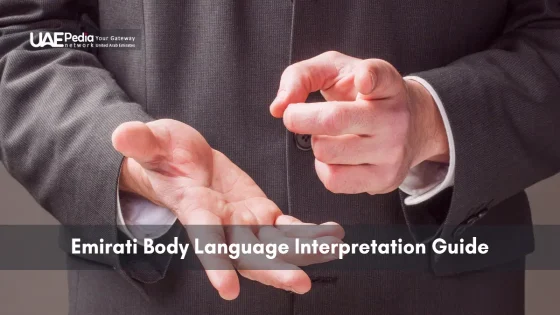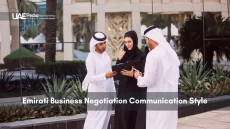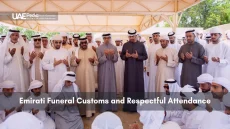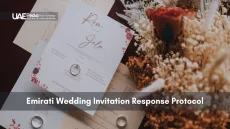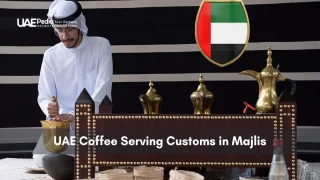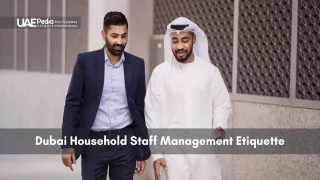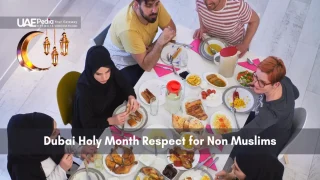Did you know offering Arabic coffee isn’t just a drink—it’s a silent pact of trust? In the United Arab Emirates, every gesture of welcome carries centuries of meaning. This desert-born nation thrives on connections where history whispers through steaming gahwa cups and shared dates.
Here, Bedouin resilience meets cosmopolitan energy. Generosity isn’t a choice; it’s woven into the land’s DNA. Whether you’re attending family gatherings or business meetings, understanding these unspoken rules bridges gaps between visitors and locals.
Rooted in Islamic values and survivalist wisdom, these practices evolved from scarce resources to grand feasts. Today, they shape everything from how meals are served to why doors stay open. But don’t worry—we’ve mapped the nuances so you can navigate chats in the majlis or gift exchanges without a misstep.
The United Arab Emirates’ social protocols are underpinned by Islamic jurisprudence and Bedouin resource-sharing traditions. Core expectations include modest attire (shoulders and knees covered), use of the right hand for eating and greetings, and acceptance of Arabic coffee (gahwa) and dates upon arrival. Public fasting hours during Ramadan require non-Muslims to refrain from eating, drinking, or smoking in public; violations incur fines up to AED 2,000 or imprisonment. Friday Jumu’ah prayers trigger nationwide business pauses, and elders are accorded priority seating and the first pour of coffee.
Travelers must present a passport valid for ≥6 months, proof of onward/return travel, accommodation confirmation, and health insurance covering the UAE. A tourist visa allows 30–90 days; a 5-year multiple-entry visa permits 90-day stays with possible 90-day extension, contingent on maintaining ≈USD 4,000 bank balance. Business visitors need invitation letters and authenticated credentials. Dress codes tighten during Ramadan; mosque visits require covered limbs and shoe removal. Adherence to these regulations ensures compliance with UAE Immigration Policies and facilitates seamless cultural integration.
- Discover how ancient trade routes influence today’s welcoming rituals.
- Learn why patience and respect unlock deeper connections.
- Spotlight on modern twists keeping traditions alive in cities like Dubai.
Understanding the Essence of Emirati Hospitality
Imagine walking into a room where every gesture says “you belong here.” That’s the heartbeat of UAE social life—an unspoken language of generosity forged by desert survival and timeless values. At its core, this approach transforms simple acts into bonds that outlast fleeting visits.
Three pillars define these customs: respect for elders, communal sharing, and unwavering warmth. Hosts often prioritize guests’ comfort over their own—a practice rooted in Bedouin traditions where scarce resources meant collective survival. Today, it’s why meetings start with fragrant gahwa (Arabic coffee) poured from a dallah pot into handleless cups.
| Aspect | Traditional Roots | Modern Adaptation |
|---|---|---|
| Welcoming Guests | Offering dates & saltwater (symbolizing peace) | Luxury hotel majlis with digital check-ins |
| Social Gatherings | Storytelling under starlit skies | Skyscraper dinners with heritage themes |
| Gift Exchanges | Handwoven textiles | Artisanal chocolates in palm-leaf boxes |
Islamic teachings amplify this ethos. The Quranic principle “feeding the guest is a duty” lives in multi-course feasts and open-door policies. Yet Dubai’s sleek lounges prove culture evolves without losing its soul—think gold-leaf coffee served alongside VR tours of ancient trade routes.
To experience this blend, notice how elders receive the first coffee pour. Watch how conversations pause for prayer times. These silent codes reveal more than words ever could. As one Abu Dhabi teacher told me: “Our doors swing inward—not to keep things out, but to welcome life in.”
Read More:
Emirati Hospitality Customs Guest Expectations
Ever wondered why your host’s smile widens when you decline a third coffee refill? In UAE social spaces, every action carries intention. Upon entering a home or event, you’ll notice immediate gestures—steaming gahwa served in petite cups, plump dates arranged on silver trays. These aren’t mere snacks; they’re silent invitations to connect.
Hosts often begin interactions by prioritizing your comfort. You might be ushered to the prime seating spot or offered refreshments before casual chatter starts. This ritualized care stems from Bedouin roots—where sharing scarce resources meant survival. Today, it translates to meticulous attention to detail, whether in a sleek Dubai lounge or a family majlis.
Watch the coffee ritual closely. Tiny cups signal moderation—a tradition born from desert pragmatism. When your cup is refilled, shaking it gently signals “enough.” As a Dubai-based chef shared:
“That subtle gesture says you value their effort without overstepping.”
Unspoken rules shape these exchanges:
- Wait for elders to initiate conversations
- Accept offerings graciously—even a single date shows respect
- Avoid discussing sensitive topics unless the host does first
Modern settings blend these codes with contemporary flair. Business meetings might pair gold-rimmed coffee cups with digital menus, but the core remains: mutual regard fuels every interaction. Recognize this dance of generosity, and you’ll unlock deeper connections beneath the surface.
The Warm Welcome: Coffee, Dates, and Generosity
Three rhythmic taps announce the arrival of liquid gold—steaming gahwa swirling with cardamom and saffron. This isn’t Starbucks; it’s a ceremony where every sip carries ancestral whispers. Across UAE homes and boardrooms, the coffee ritual remains a living bridge between past and present.
Traditional Arabic Coffee (Gahwa) Rituals
Watch the dallah pot tilt—its curved spout pouring amber brew into thumb-sized cups. Roasted lightly with cloves, the arabic coffee releases an earthy aroma that lingers like desert campfire smoke. Served right-handed, the first cup always goes to the eldest—a nod to wisdom earned.
| Element | Tradition | Modern Twist |
|---|---|---|
| Cup Size | Handleless to savor heat | Designer porcelain with heritage motifs |
| Refill Signal | Gentle cup shake | Discreet hand wave in busy cafes |
| Dates Pairing | Local Khalas variety | Chocolate-dipped versions at luxury hotels |
That third refill? Decline by wobbling your cup—a Bedouin-era gesture saying “my heart is full.” As a Dubai barista explained:
“We read cups like text messages—quick, clear, full of meaning.”
Reading the Host’s Gestures
Notice where dates land on your plate. Centered means “stay longer”; pushed aside hints the visit’s winding down. Hosts refill silently—their watchful eyes tracking your comfort. Leave a half-sipped cup? They’ll bring chilled rosewater to reset your palate.
This dance of generosity thrives in holiday gatherings and business lounges alike. When you taste that bittersweet gahwa, you’re not just drinking coffee—you’re sipping centuries of shared survival and sun-scorched solidarity.
The first cup of gahwa always goes to the eldest or most honored guest, poured from a dallah in the right hand — a practice backed by centuries of Bedouin heritage. Ref.: “Culture of the United Arab Emirates” (2025). Wikipedia.”
Family and Social Structures in Emirati Culture
Picture a family dinner where stories flow like desert winds—grandparents recount pearl-diving adventures while toddlers swipe tablets. This blend of old and new defines social life here. At its core, kinship ties shape decisions, celebrations, and even career paths.
The Role of Elders and Patriarchy
Grandparents aren’t just babysitters—they’re living libraries of regional wisdom. Major family choices often involve consulting elders, a practice rooted in Bedouin resource-sharing. Men traditionally lead households, but as a Sharjah professor told me:
“Authority here isn’t about control—it’s steering the ship so everyone reaches shore.”
Empowering Modern Emirati Women
Today’s women navigate boardrooms and family majlis with equal finesse. Over 70% of university graduates are female, with many leading in government and tech. Take Dr. Amal Al Qubaisi—she became the Arab world’s first parliamentary speaker while championing heritage preservation.
Three shifts redefine gender roles:
- Mothers balancing CEO roles with Friday family lunches
- Young women launching startups using traditional crafts
- Fathers increasingly sharing childcare duties
Yet Friday gatherings still see sons serving elders first. It’s this dance between progress and tradition that keeps the cultural fabric vibrant—and visitors fascinated.
Emiratization quotas have significantly reshaped the hospitality workforce, with localization programs boosting Emirati representation by over 20% since 2018. Ref.: “Karanikola, I. (2021). What Attracts Emiratis into Working in the Hospitality Industry? ResearchGate.”
Exploring Religious Customs and Ramadan Practices
What happens when sunset paints Dubai’s skyline pink? Across the UAE, communities pause for iftar meals—a sacred rhythm blending devotion and connection. Islam’s influence shapes daily life here, from bustling souks closing for prayers to silent streets during fasting hours.
Observing Ramadan Etiquette and Fasting
Ramadan transforms the Emirates. Locals abstain from food/drink sunrise to sunset—even water. Visitors should avoid eating publicly during daylight unless in designated areas. As a Dubai resident shared:
“We don’t expect tourists to fast, but discretion shows respect for our tradition.”
| Practice | Traditional Approach | Modern Adaptation |
|---|---|---|
| Iftar Meals | Communal mosque gatherings | Luxury hotel tents with live oud music |
| Prayer Times | Adhan (call to prayer) via mosque loudspeakers | Smartphone app alerts |
| Charity | Direct food distribution | Apps like “Eidiya” for digital donations |
Eating, drinking, or smoking in public during Ramadan daylight hours can incur fines up to AED 2,000 or one month’s imprisonment. Ref.: “Rules for Outdoor Eating During Ramadan 2025” (2025). DAMAC Properties.”
Significance of Friday and Daily Prayers
Friday holds special weight—it’s Jumu’ah day. Businesses often close midday for congregational prayers. Workdays adjust around five daily prayer times, with malls pausing music. When visiting mosques, dress modestly (covered shoulders/knees) and remove shoes.
During Ramadan, nights buzz with energy. Families host feasts until dawn, while streets glitter with lanterns. Key tips:
- Greet locals with “Ramadan Kareem” (Generous Ramadan)
- Accept dates/juice offered at sunset—it’s a kindness ritual
- Skip loud music in cars or public spaces
Understanding these rhythms isn’t just polite—it reveals the soul of a culture where faith and customs dance in harmony.
Traditional Attire, Body Language, and Cultural Etiquette
Ever notice how fabric choices become silent conversations? In the UAE, clothing speaks volumes before words begin. From flowing white kanduras to intricate abayas, local attire blends practicality with poetry—sun-reflecting fabrics meeting desert winds.
Dress Code Guidelines for Men and Women
Visitors should lean toward modesty. Men: opt for long pants and collared shirts—save shorts for beaches. Women: loose-fitting dresses below the knee or tailored trousers work well. Think breathable fabrics over sheer materials. A Dubai stylist advises:
“Covered shoulders and knees aren’t just rules—they’re respect worn daily.”
| Setting | Traditional Attire | Visitor Adaptation |
|---|---|---|
| Social Events | Men: Kandura | Women: Abaya with Shayla | Neutral tones, minimal jewelry |
| Public Spaces | Full-length garments | Avoid tank tops, crop tops |
| Home Visits | Hosts in national dress | Remove shoes unless directed |
Understanding Non-verbal Communication
Handshakes here start light—men wait for women to extend hands first. Eye contact shows engagement, but prolonged stares feel intrusive. Crossing legs? Keep soles hidden—it’s considered impolite.
Notice subtle cues:
- Palm-down gestures signal “wait” or “enough”
- Head tilts replace finger-pointing
- Personal space bubbles stretch wider than Western norms
Traditional body language mirrors desert pragmatism—slow nods mean active listening, not agreement. As one Abu Dhabi tour guide shared: “Our gestures map the land—wide, warm, and full of hidden trails.”
Home and Hospitality Etiquette in Everyday Life
Ever stepped into a space where the air hums with anticipation before words are spoken? In UAE homes, every cushion placement and scent choice whispers intentional care. This meticulous preparation turns living rooms into cultural stages where bonds are forged.
Preparing the Guest Space
Three elements transform rooms into welcoming stages: light, scent, and flow. Hosts often clean with oud-infused cleaners—a nod to desert caravan traditions. Seating circles face inward, mimicking Bedouin campfire layouts that encourage shared stories.
| Traditional Element | Modern Adaptation |
|---|---|
| Floor cushions | Low modular sofas |
| Frankincense burners | Reed diffusers with amber notes |
| Central date platter | Artistic charcuterie boards |
Conversation zones follow unspoken rules. The majlis area prioritizes elder seating near AC vents—practical hospitality meets respect. As a Dubai interior designer notes:
“We choreograph spaces like theater directors—every prop has purpose.”
Subtle Nuances in Greetings and Goodbyes
First encounters set the tone. A host’s initial words often include “ahlan wa sahlan” (you’re among family), paired with light handshakes. Departures involve insisting guests stay longer—a ritual requiring graceful exits after the third decline.
Key gestures to master:
- Greet elders first—a slight head bow adds respect
- Accept rosewater hand rinses post-meals
- Pause at the threshold when leaving—it honors the threshold’s symbolic protection
These practices aren’t relics. Young Emiratis blend them with Spotify playlists and neon-lit home bars. The magic lies in balancing ancestral codes with today’s rhythm—proof that true hospitality evolves without forgetting its roots.
Modern Influences on Traditional Hospitality
Imagine paying for groceries with a palm scan while your phone buzzes with a majlis dinner invite. The UAE thrives on this paradox—ancient tradition dancing with cutting-edge innovation. Skyscrapers tower over sand dunes, yet the heartbeat of customs remains steady.
Tech now amplifies age-old rituals. Hotels use AI to predict guest preferences while preserving coffee-serving etiquette. A Dubai architect explains:
“We code apps in Arabic first—ensuring tech speaks the land’s language.”
| Tradition | Modern Spin |
|---|---|
| Handwoven baskets | 3D-printed date trays |
| Oral storytelling | Augmented reality heritage tours |
| Frankincense trails | NFT art inspired by desert patterns |
Media reimagines arab emirates culture too. Hit TV shows feature young Emiratis debating tribal poetry over matcha lattes. Urban parks host holographic reenactments of pearl-diving histories.
Integrating AI-driven guest-profile systems can slow traditional coffee service by up to 30 seconds per pour — a trade-off between personalization and speed. Ref.: “Analysing the Hospitality Sector for Economic Growth in UAE” (2023). Journal of Hospitality & Tourism.” Ajpojournals
Yet core values endure. Friday feasts still unite families—though Instagram stories now share the spread. The united arab approach? Honor roots while grafting new branches. As one Abu Dhabi chef laughs:
“My grandfather’s coffee recipe pairs perfectly with cold brew taps.”
This fusion defines the region’s identity. From AI-powered arab emirates museums to blockchain-tracked charity drives, every innovation carries a whisper of ancestral wisdom. The result? A living culture where Bedouin codes meet biometric check-ins—and neither misses a beat.
The Art of Providing True Hospitality
Have you ever noticed how some spaces instantly make you exhale? True connection thrives where attentive listening meets thoughtful ambiance. This craft blends intuition with intention—transforming routine interactions into memorable exchanges.
Listening and Engaging with Guests
Great hosts read rooms like desert guides read shifting sands. They notice when shoulders relax during a shared laugh or when eyes flick toward exits. One Dubai event planner shared:
“Your best tool isn’t the coffee pot—it’s silence that lets others speak.”
Three practices elevate interactions:
- Asking open-ended questions about travel stories or local discoveries
- Mirroring conversational energy (soft tones for shy visitors, lively banter for extroverts)
- Adjusting topics based on subtle cues—like steering clear of politics if someone hesitates
Creating a Comforting Atmosphere
Lighting sets the stage. Dimmable lamps replace harsh overheads, while cinnamon-scented candles echo traditional incense. Seating arrangements matter too—a circular layout encourages shared stories over isolated screens.
| Ambiance Element | Traditional Approach | Modern Hack |
|---|---|---|
| Temperature | Strategic fan placement | Smart AC synced to guest arrivals |
| Snacks | Dates on brass trays | Dark chocolate with sea salt |
| Soundscape | Oud music | Curated playlists mixing Arabic strings with chillhop |
Personalized touches leave lasting impressions. A business traveler might find their favorite mint tea waiting. Families receive embroidered name cards for kids. These gestures whisper: “We see you.”
Navigating Emirati Weddings and Festive Celebrations
What’s the secret behind midnight henna sessions and men’s sword dances under stadium lights? UAE celebrations blend ancestral traditions with glittering modern flair. These gatherings aren’t just parties—they’re living museums of joy where every detail whispers stories.
Gender-specific events remain common. Women’s gatherings often feature intricate henna art and perfume blending, while men’s events showcase poetry recitals or traditional ayyala dances. A Dubai event planner shared:
“Guests receive different invites—like puzzle pieces that create one vibrant picture.”
Key elements define these occasions:
- Seating by age and relation—elders closest to hosts
- Lavish spreads of machboos (spiced rice) and luqaimat (sweet dumplings)
- Gifts wrapped in green (symbolizing growth) or gold (prosperity)
| Aspect | Traditional | Contemporary |
|---|---|---|
| Music | Oud & tambourine | DJ mixes with folk beats |
| Attire | Hand-embroidered dresses | Designer gowns with heritage motifs |
| Gifts | Frankincense & silver | Customized perfume sets |
Time your arrival—showing up early implies eagerness, while late entries disrupt flow. When dining, taste every dish offered; declining multiple items may seem dismissive. Remember, laughter here isn’t just sound—it’s the glue binding family across generations.
For visitors, modest attire and attentive listening open doors. As one frequent guest noted: “They’ll teach you the sword dance steps if you smile more than you speak.” Embrace the rhythm, and you’ll find yourself not just attending—but belonging.
Dining Customs and Communal Meal Practices
Ever tasted saffron-infused rice where every grain tells a story? In UAE gatherings, shared platters become conversation starters—a delicious blend of heritage and connection. Large copper trays piled with machboos (spiced rice) and slow-cooked lamb signal more than hunger relief; they’re edible invitations to bond.
Breaking Bread, Building Bonds
Families and friends gather around low cushions, fingers diving into communal dishes. Eating with the right hand isn’t just practical—it’s a tactile tradition echoing Bedouin resourcefulness. As a Dubai chef explains:
“Your palm becomes the perfect spoon—temperature-sensitive and waste-free.”
| Traditional Practice | Modern Adaptation |
|---|---|
| Floor seating with shared platters | Long banquet tables with individual portions |
| Hand-rolled bread as edible utensils | Artisanal flatbreads served with dipping oils |
| Date syrup drizzled on savory dishes | Gourmet date-infused glazes |
Three rules guide these meals:
- Sample every dish offered—it honors the host’s effort
- Leave the last bite for others—generosity in action
- Wash hands with rosewater post-meal—a sensory full stop
Communal dining with shared platters poses a hygiene risk if hand-washing protocols aren’t strictly followed. Ref.: “Hospitality, Tourism, & Leisure in the U.A.E.” (2019). US-UAE Business Council.” Usuaebusiness
Liquid Gold & Sweet Symbols
Coffee and dates bookend every feast. Bitter gahwa cuts through rich meats, while caramel-like Khalas dates balance earthy flavors. Watch the pour—hosts refill cups until guests gently shake them, a silent “thank you” understood across languages.
| Element | Meaning |
|---|---|
| Odd number of dates served | Symbolic of unity |
| Coffee served right-handed | Gesture of respect |
| Dates arranged clockwise | Wish for smooth journeys |
Visitors should:
- Use their right hand for eating/drinking
- Try at least three date varieties
- Accept second helpings—it pleases hosts
These traditions transform meals into living history lessons. From spicy stews to honey-drenched desserts, every bite celebrates community—one shared platter at a time.
Practical Tips for Visitors Embracing Emirati Culture
What if your handshake could unlock a deeper cultural connection? Navigating the UAE’s social codes becomes effortless when you blend curiosity with simple courtesies. Let’s map the essentials—from greetings to gestures—that turn brief visits into meaningful exchanges.
Start with language. A warm “As-salamu alaykum” (Peace be upon you) opens doors faster than any app. Pair it with a light handshake—women often initiate physical contact first. For deeper insights, explore this cultural etiquette guide that decodes subtle nuances.
| Do | Avoid |
|---|---|
| Dress modestly: loose sleeves, knee-length hems | Public displays of affection |
| Remove shoes at home entrances | Declining coffee without a polite “shukran” |
| Use right hand for eating/shaking | Pointing soles of feet toward others |
Business travelers: note that meetings may pause for prayer times. Arrive 10 minutes late to allow hosts prep time—it’s expected, not rude. As a Dubai entrepreneur shared:
“We value thoughtful pauses over rushed decisions.”
Three insider hacks for authentic experiences:
- Learn three Arabic phrases: greetings, thanks, and compliments.
- Carry travel-sized perfume—gifting scents shows appreciation.
- Check travel documents early to avoid visa hiccups.
Respect shines in details. When photographing women in traditional attire, always ask permission. During Ramadan, discreetly snack in designated areas. These small acts build trust—and often lead to invitations for home-cooked feasts.
Reflecting on the Heritage and Legacy of Emirati Hospitality
What if ancient desert codes could thrive in a metropolis of glass? The UAE’s welcoming spirit proves traditions evolve without fading. Time-tested values—like honoring elders and sharing resources—still shape interactions from majlis gatherings to high-rise boardrooms.
Centuries-old gestures remain vital today. Coffee rituals adapted for quick business lunches. Flowing kandura robes paired with designer watches. These blends show how cultural heritage anchors progress. Even Dubai’s futuristic hotels preserve quiet moments for prayer and reflection.
Shared meals and modest dress codes reveal deeper truths. Generosity here isn’t performative—it’s a lived language. As skylines rise, the essence stays: connection over transactions, warmth over formality.
Visitors witness this legacy daily. A chef reinventing date desserts using molecular gastronomy. Tech CEOs hosting iftar dinners under neon-lit tents. Every innovation carries whispers of caravans and pearl divers.
To experience this duality, embrace both history and tomorrow. Savor bitter gahwa in a mirrored lounge. Notice how elders’ wisdom guides youth-led startups. The UAE’s magic lies not in choosing past or future—but weaving them into something timeless.
Offering gahwa and dates is a cornerstone of Emirati hospitality—it’s like a handshake in edible form. The bitter coffee symbolizes warmth, while sweet dates balance the flavor, reflecting the host’s desire to create harmony. Refusing it? Not an option unless you want to accidentally send a “I’m not into your vibe” message!
Think modest-chic. Women often wear loose, ankle-length clothing with sleeves; men opt for collared shirts and full-length pants. Bright colors? Go for it! Just avoid sheer fabrics or anything too tight. Pro tip: Pack a lightweight scarf—it’s your multitool for sun protection and cultural respect.
Absolutely. Elders sit first, speak first, and get the first sip of gahwa. Greet them with a slight bow or hand-over-heart gesture. Avoid crossing your legs or showing soles of shoes—it’s like silently yelling “I’d rather be elsewhere” in body-language code.
Daytime nibbles? Save them for private spaces. Public eating/drinking during fasting hours is a no-go. Come sunset, join the iftar feast—mosques and hotels often host communal meals. Bonus points: Learn to say “Ramadan Kareem” with a smile—it’s the cultural equivalent of a fist bump.
Let the host lead. Many Emirati women prefer a nod or hand-over-heart greeting to handshakes. In business? Watch for cues—some may offer a hand, others won’t. Your move: Keep that right hand relaxed by your side, ready to mirror their gesture like a hospitality ninja.
It’s not about your appetite—it’s about their honor. Declining politely? Say “Al hamdulillah” (thanks to God) while gently covering your plate. They’ll insist twice more; stay gracious but firm. Master this dance, and you’ve unlocked Level 10 in Emirati guest-fu.
Skip alcohol and perfume (sensitive choices). Dates from your hometown? Gold star! Present gifts with both hands or your right hand only. Pro move: Wait till invited into the home to unveil it—like a cultural mic drop moment.


